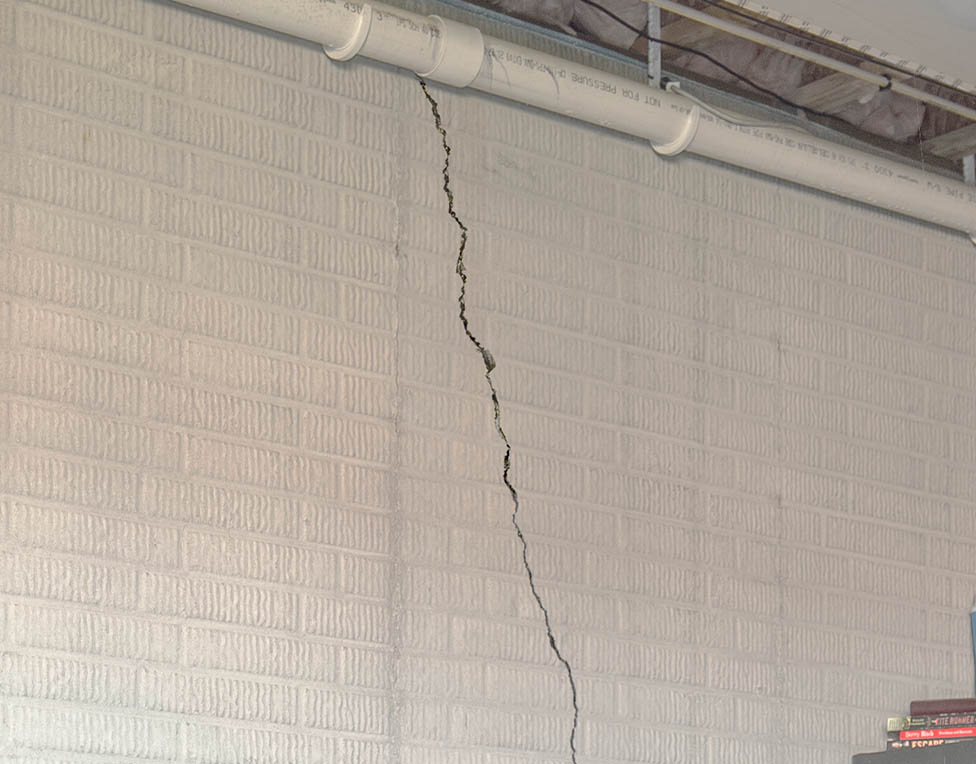Understanding foundation cracks

Your home’s foundation is the key to ensuring your biggest investment stays safe and sound.
Keeping an eye out for foundation cracks is one of the most important things you can do to make sure your home’s foundation is in stable condition. Most of the time, foundation cracks are a sign of a foundation settling, but to be sure, it’s important to understand what certain cracks mean for certain foundation walls.
Newer homes are often built with foundation walls made from poured concrete and reinforced steel bars, and older homes are typically constructed of 16” x 8” X 8” concrete masonry units (frequently referred to as CMUs).
To give you a better understanding of when you should be concerned with cracks in your walls, we’ve outlined the most common types of foundation cracks you’ll find in both newer and older homes. Some of these cracks are normal and don’t require attention, but others might warrant further inspection.
Why it’s important to inspect foundation cracks
Because cracks grow so slowly, it’s easy to feel like the problem isn’t getting any worse, and it’s understandable that you’d want to ignore the problem completely. But, even if you can’t see the cracks growing in real time, your home’s foundation is still suffering, and eventually, the foundation will likely fail, which will then leave you with an unfortunate and expensive situation. It will never be cheaper to fix your foundation than it is today.
Shrinkage cracks in poured concrete walls
When concrete is poured into building your foundation walls, the concrete can crack while it cures and shrinks. Those hairline cracks are typically short and vertical and aren’t a sign of structural weakness.

Diagonal cracks in poured basement walls
Diagonal cracks usually occur at the upper corners of a basement wall. These cracks generally happen if the foundation wall is suffering from immense stress from the outside that is pushing the wall inward.
These cracks could be indicating that your home’s foundation could be settling. Fortunately, if the damage is noticed early enough, there’s a likelihood that the foundation can be re-stabilized.
![]()
Cracks in block walls
Just like poured walls, block foundation walls with cracks usually indicate that your foundation is under a lot of stress. However, unlike poured walls, block walls will bow in as the mortar joints break and produce horizontal cracks in the middle of the wall.
If you’re reading this, you’re already making a smart decision by researching your home’s foundation. The next step is to schedule your free foundation inspection with TerraFirma and restore your home’s value and your peace of mind.


